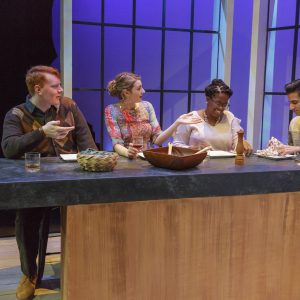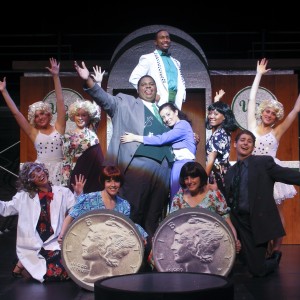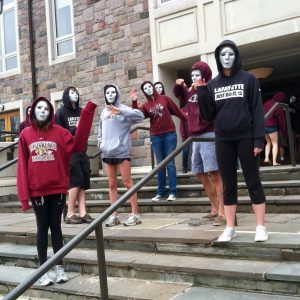Assessment
Theater Department
Assessment Plan for the Major in Theater
I. Student Learning Outcomes for the Theater Major:
Students who graduate with a major in Theater should understand the knowledge base and the scholarly and critical practices that constitute the field of theater. Specifically, students should be able to:
- Identify and analyze a range of critical methodologies (theories, practices, and approaches) and apply them deliberately to a range of texts, both literary and non-literary;
- Understand the history, central assumptions, questions, and vocabulary of the discipline, with specific emphasis placed on recognizing theatrical and historical periods and styles, dramatic genres and conventions, global theater traditions, and diverse artists and creative works.
Students who graduate with a major in Theater should be able to enact the scholarly and critical practices of the discipline. Specifically, graduates should be able to:
- Demonstrate informational literacy in the context of scholarly practices and technological developments in the discipline;
- Utilize critical thinking skills to solve production problems systematically, creatively, collaboratively and effectively.
Students who graduate with a major in Theater should be able to apply the knowledge of the discipline. Specifically, graduates should be able to:
- Perform as highly skilled and self-conscious readers, writers, designers and/or performers of complex texts in a variety of media and genres (analytical, argumentative, imaginative, and dramatic).
- Exhibit competence in at least one area of production.
II. These goals are achieved in several ways:
- Through a series of 100-level courses that introduce students to the academic study of the discipline, provide opportunities for learning and applying practical theater skills in the department’s theater season, contribute to the college’s program in general education and provide diverse gateways to the major and minor in Theater.
- Through a series of 200-level courses that provide students with more intensive study and practice of Theater skills, and a more comprehensive understanding of the history and genres of the Theater.
- Through a series of 300-level courses that provide students with specialized practice and writing through focusing on specific and specialized periods, practices, styles, genres, authors and theoretical issues.
- Through the option of independent study, honors theses, and internships.
- Through the completion of a senior project or honors thesis which provides a comprehensive Theater capstone experience.




